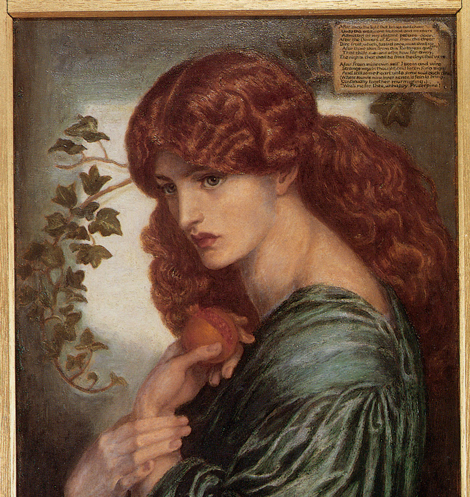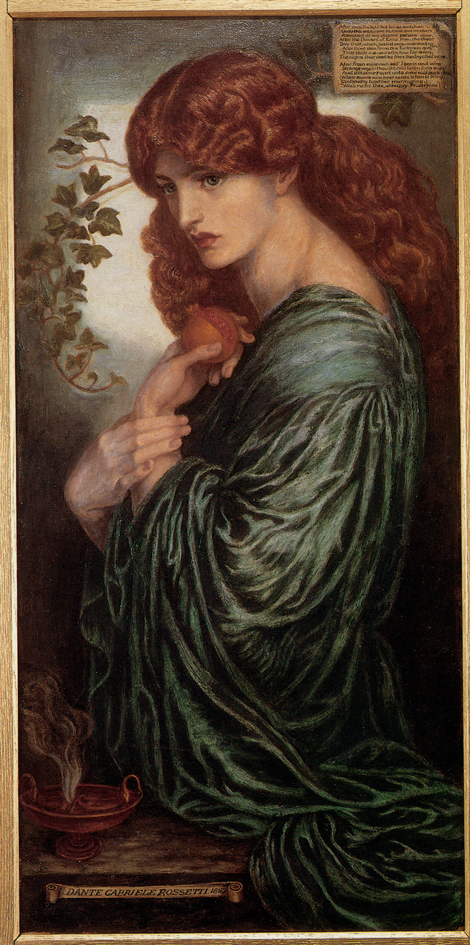To attempt to improve upon nature can mean creating a monster, something we are quite accustomed to in the plastic surgery industry, as we are in love with artificiality. How did this happen? Boredom with nature? Love of our own capabilities? Maybe it’s not a bad thing but a natural progression toward “the age of the robots” which the movies are currently hawking. I have no idea when it started but I know when I first encountered it—it was in a painting of a beautiful woman by Rossetti. It completely repulsed me, and I couldn’t figure out why.
One look at Rossetti’s Jane Morris and the Pomegranate and I long for a Botero show, I run for my book on Francis Bacon, I recover in the coils of Beardsley—and that’s just the Bs. I can’t wait to get to Picasso’s thousand one-eyed side views of the nose to really calm down.
What was Rossetti’s excuse for the overripe lips, the excessive amount of hair, the curled arthritic-looking hand and the kind of body curves that only come with the removal of the backbone? His excuse was that he believed he could improve on nature and make poor Jane more beautiful than she actually was. And suddenly Jane is revolting. In beautiful Jane’s lips there is something greedy and perverse. I love the English Romantics but I find Jane scary. She is the Kim Kardashian of Britain’s Romantic movement.
At best she is a design for a civilization to hang its hat on. But it’s not very English or very mythic. It’s just something that would freak you out if you found it in your bedroom. After a while we get used to it. We even crave it. Now it merely means romantic poetry, just another harness women had to deal with, like the corset or the facelift. Just another blind alley men run into— like fake tits. (I actually know someone who prefers fake tits.)
I am sure Rossetti’s relentless obsession to improve on mother nature, while never grasping that he was creating a monster, is what brought this beautiful poet to his dark, lonely, drug-addicted end. Perhaps I am oversensitive to this very human urge of more-is-better which begins innocently enough with drawing, advances through Photoshopping, and has ended up operating on the living. Is it our honest desire to improve, to make it even better? Or is it our disrespectful desire to replace God, rearrange the planet, and live forever as ghouls?
(A friend of mine got an ass-lift and now her ass is smaller than her hips. She has a boy’s ass. It’s totally flat. I told her it looked great, and stupefying pleasure bubbled up in her eyes.)



